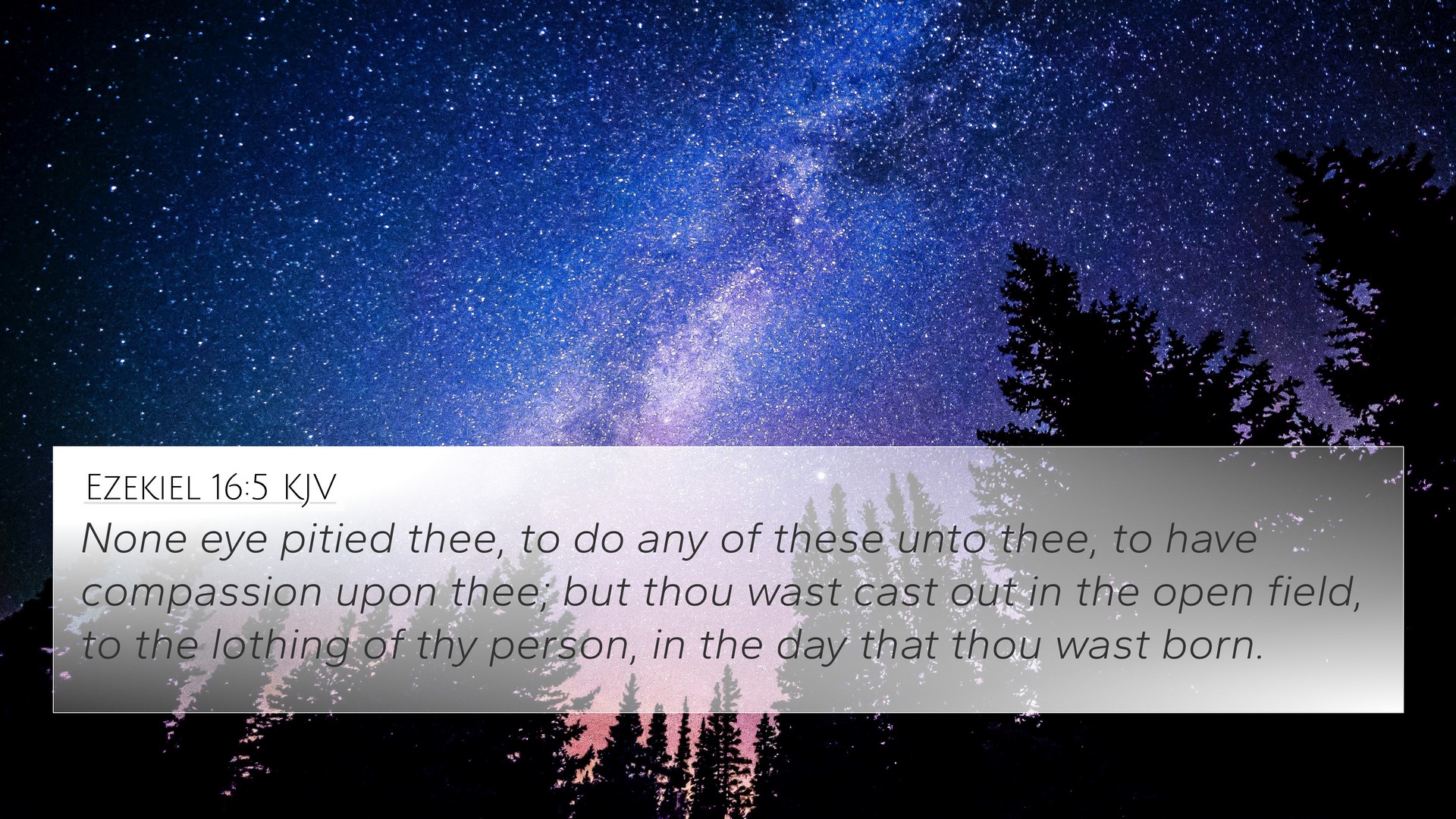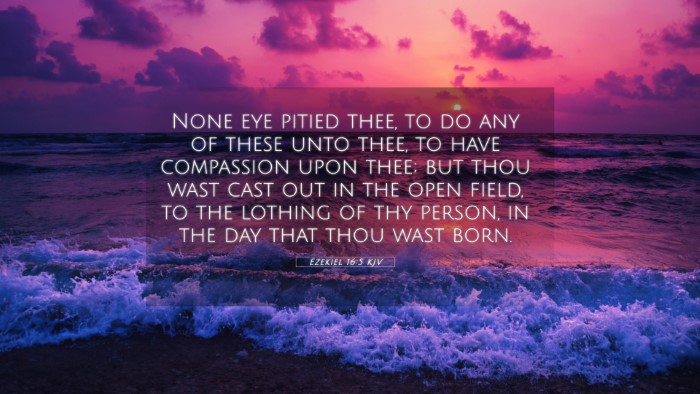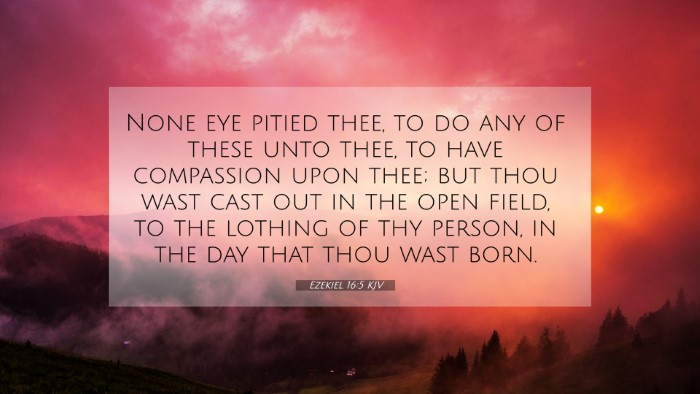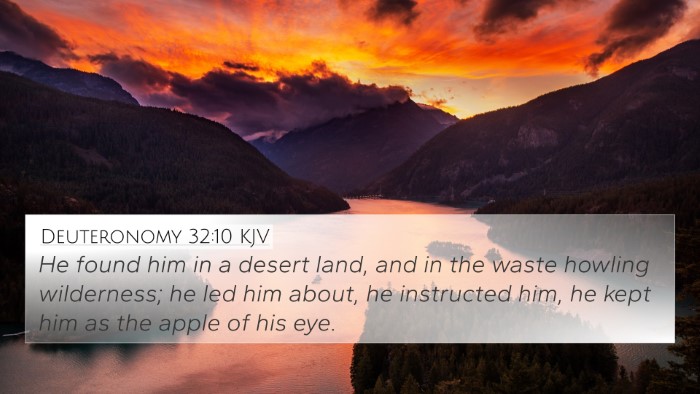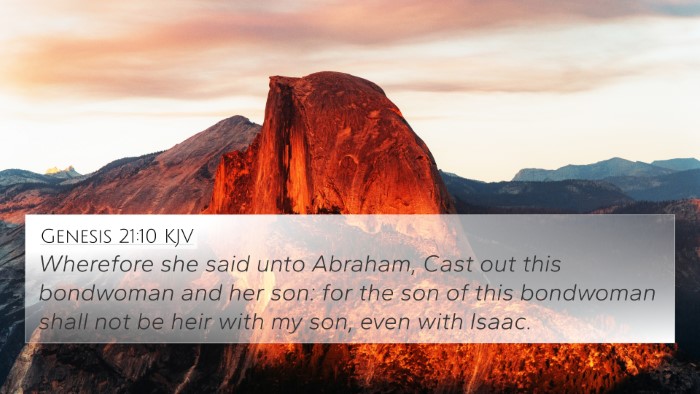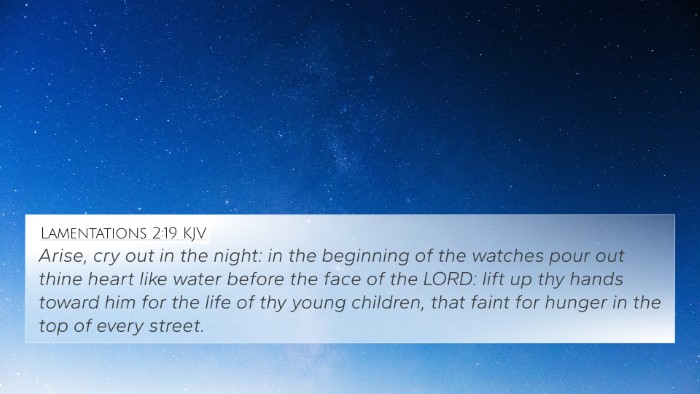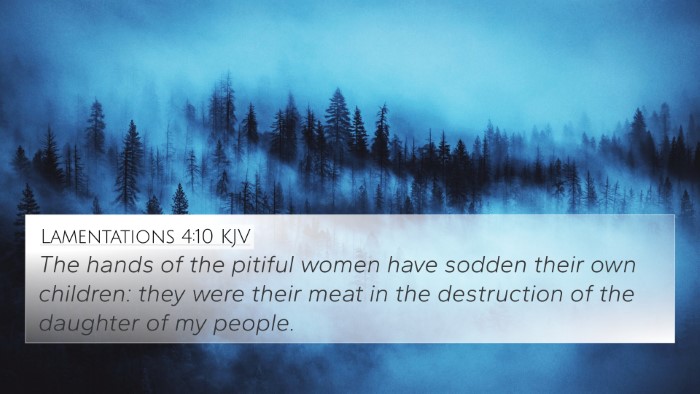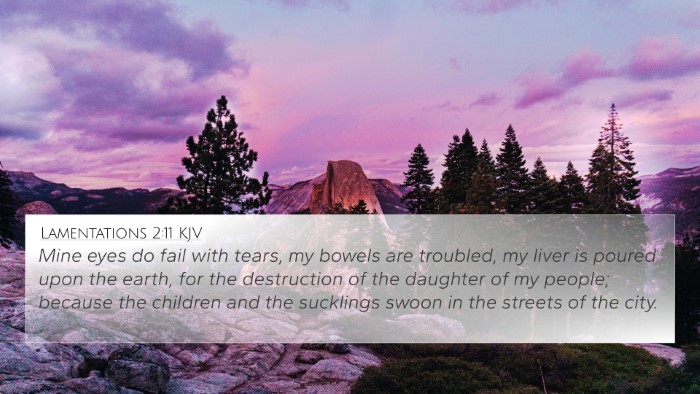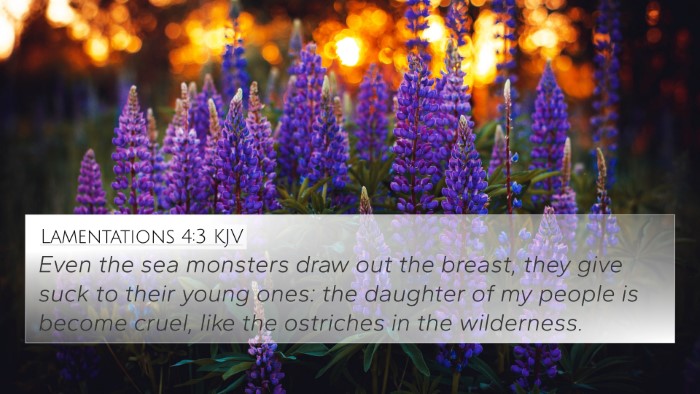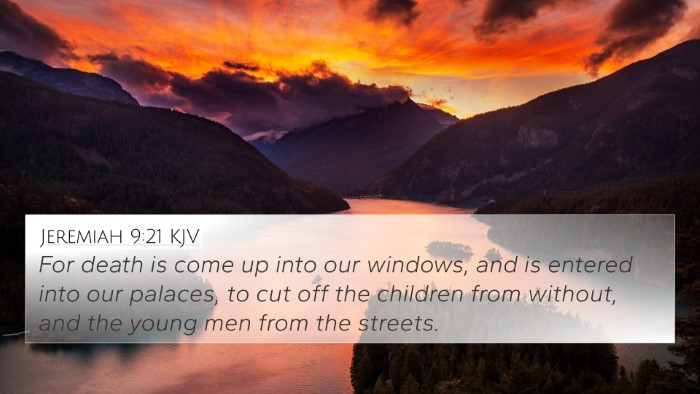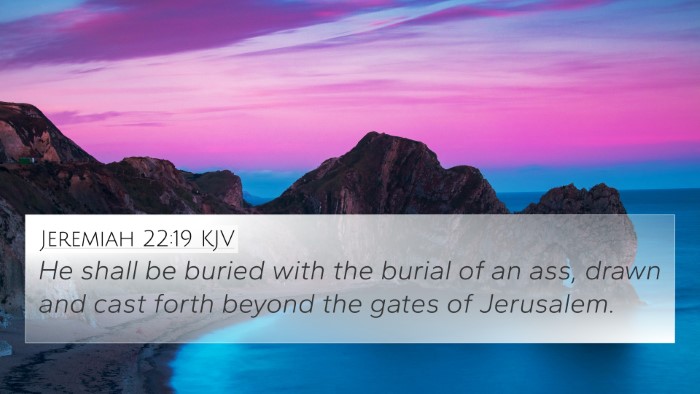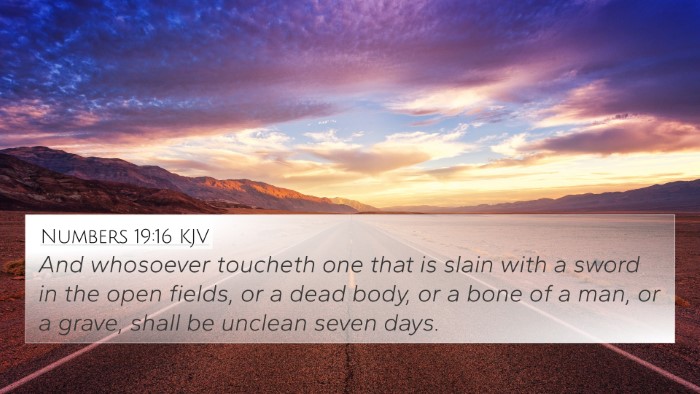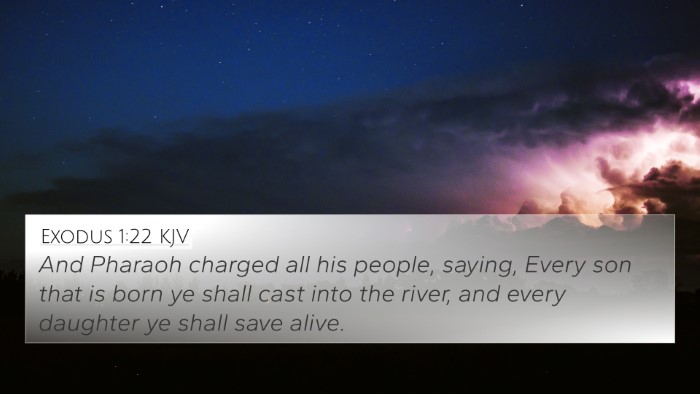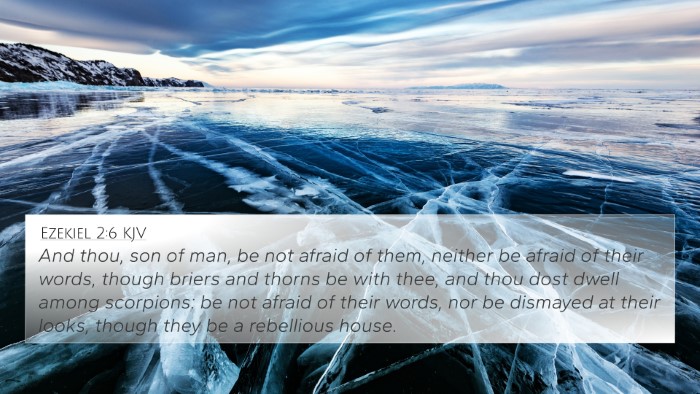Ezekiel 16:5: A Comprehensive Commentary
The verse Ezekiel 16:5 reads:
"No eye pitied thee, to do any of these unto thee, to have compassion upon thee; but thou wast cast out in the open field, to the loathing of thy person in the day that thou wast born."
Meaning and Interpretation
This verse serves as a poignant depiction of Israel's state of abandonment and neglect. In this commentary, we draw insights from various public domain sources including Matthew Henry, Albert Barnes, and Adam Clarke to illuminate its meaning.
General Context
Ezekiel 16 contains a powerful allegory of Jerusalem's unfaithfulness to God, portrayed as an abandoned infant whom God later nurtured into a beautiful woman. This verse specifically emphasizes the neglect that preceded God's intervention.
Commentary Insights
- Matthew Henry: Henry highlights the intense vulnerability of the people depicted in the verse. The imagery used illustrates that no one showed compassion towards the forsaken child, emphasizing the utter desolation prior to divine grace.
- Albert Barnes: Barnes explains that this abandonment signifies the state of Israel before God's loving engagement. The 'open field' symbolizes a lack of boundaries or protection, indicating danger and desolation.
- Adam Clarke: Clarke emphasizes the societal implications of such neglect. The phrase 'to the loathing of thy person' implies not only a physical abandonment but also a social rejection that alienates the individual from the community.
Thematic Connections
This verse is connected thematically to various biblical concepts including:
- The Nature of Sin: Just as Israel was abandoned, all have sinned and fall short of the glory of God (Romans 3:23).
- Divine Grace: God's intervention amidst despair is a recurring theme (Ephesians 2:8-9).
- Care for the Vulnerable: God’s heart for the oppressed signifies His compassion (Psalm 146:9).
Bible Verse Cross-References
To further deepen your understanding, consider these related scriptures:
- Exodus 22:22: God's admonition to care for those who are marginalized.
- Psalm 27:10: A reminder that though one's family may forsake them, God will take them in.
- Lamentations 3:31-32: God’s faithful care and compassion even in times of distress.
- Isaiah 54:6: Portraying God’s affectionate response to rejection.
- Matthew 9:36: Jesus’ compassion for the lost and distressed.
- Luke 15:24: The parable of the lost son illustrates unconditional love and acceptance.
- Romans 5:8: God demonstrating His love even when we were unworthy.
Connecting the Dots
This verse "No eye pitied thee" can serve as a bridge in understanding the nature of God's love in the context of human estrangement.
Links to New Testament Teachings
The New Testament reinforces this by illustrating instances where Jesus extends his compassion to the marginalized, showcasing the fulfillment of God's promise to embrace the outcasts.
Tools for Bible Cross-Referencing
For those interested in exploring further connections:
- Bible Concordance: Use these tools to find related verses on themes across the Bible.
- Bible Cross-Reference Guide: A valuable resource for linking scripture effectively.
- Cross-Reference Bible Study: Methods for examining biblical themes and their applications.
Conclusion
Ezekiel 16:5 serves as a powerful reminder of the depths of human neglect, paired with the profound love of God that seeks to redeem and restore. Exploring inter-Biblical dialogue through cross-referencing can enrich one’s study and understanding of scripture, revealing the intricate tapestry of God's redemptive plan.
